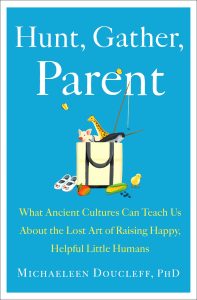
In Clear, Carys Davies crafts a hauntingly beautiful story set against the stark, wind-lashed backdrop of 1843 Scotland. With her signature precision and poetic restraint, she captures the loneliness of the human soul and the fragile threads of connection that can bridge even the widest divides.
The novel unfolds during the era of the Highland Clearances, a dark chapter in Scottish history when rural inhabitants were brutally evicted to make way for sheep farming. Reverend John Ferguson, an impoverished minister who has broken from the established church to join the newly formed Free Church of Scotland, accepts a paid assignment to “clear” a remote island of its last remaining inhabitant, Ivar. The irony is immediate: a man of God, sent to exile another man from his home.
When John arrives, fate intervenes. His small boat capsizes near the island, and he is rescued by none other than Ivar the very man he’s been sent to remove. Ivar, unaware of John’s true mission, tends to him with kindness and quiet care. The two men share no common language, yet through gestures, glances, and shared labor, a bond begins to form. Their growing connection, born of isolation and necessity, becomes a subtle rebellion against the forces of history that seek to divide them.
Meanwhile, on the mainland, John’s wife Mary grows increasingly anxious about his safety. Determined and brave, she sets out on her own journey to the island, adding another layer of tension and tenderness to the story. Through these three intertwined perspectives Ivar, John, and Mary Davies builds a narrative that is both intimate and expansive, exploring faith, survival, and the universal yearning for understanding.
Davies’s prose is spare yet evocative, her language gliding as softly as mist over the sea. Each scene feels elemental the crash of waves, the sweep of wind, the unending gray light of a northern summer. The inclusion of Norn words, an ancient and nearly vanished language once spoken in Shetland, gives authenticity to Ivar’s world and reinforces the novel’s theme of loss: of land, of language, of belonging.
The story’s pacing is deliberate, reflecting the rhythm of solitude and the slow awakening of connection. It may be quiet, but it’s never dull. Beneath the stillness lies a deep emotional current an exploration of what it means to be human in the face of change, and how compassion can survive even in the most unforgiving places.
Readers have found much to admire in Clear: its lyrical prose, its sense of place, and its moral subtlety. Yet opinions differ on the ending. Some find it abrupt, even rushed; others view it as fitting, a fleeting light that mirrors the ephemeral nature of life itself. What remains undeniable is the power of Davies’s storytelling. Like her acclaimed The Mission House, this novella proves she can distill immense emotional weight into a slender form, leaving echoes that linger long after the final page.
Clear is not a book of grand gestures or dramatic twists. It’s a story of small miracles a touch, a word, a shared silence that illuminate the vast landscape of the human heart.
If you love quiet, atmospheric fiction that marries historical realism with emotional resonance, Clear by Carys Davies is a gem you should not miss.


